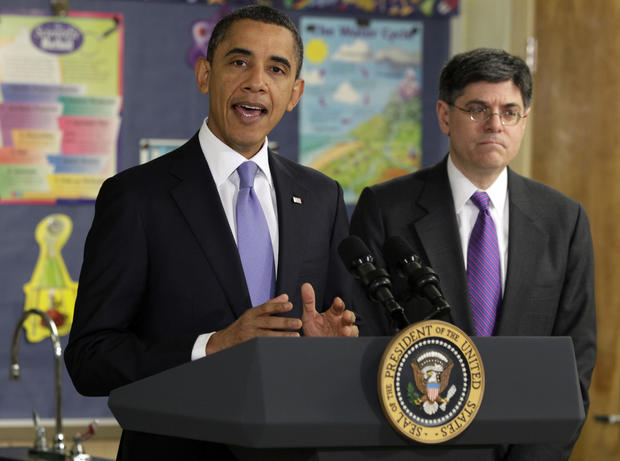On Fourth and Long, Obama Punts
There's an old saying in Washington: When the tough get going, the going turn to sports analogies. That's where we were yesterday as President Obama unveiled his fiscal year 2012 budget.
Despite the fact that the document is just a plan and has no power over what Congress actually does, the drama was intense. Many said the proposal reflected a decision to kick the can down the road, to deal with the tough problems another day. But a sports analogy, naturally, won the day.
"We got a punt," said House Budget Chairman Paul Ryan (R-WI), who is still has the Packers Super Bowl victory on his mind. "The president punted on the budget and he punted on the deficit and on the debt, that's not leadership that's an abdication of leadership." One budget expert said that the president punted instead of dealing with the biggest costs to the federal government: entitlements of Medicare, Medicaid and Social Security.
Let's take this a bit further. In football, when does a team punt? When they are facing an fourth down and long - and the odds are against them getting a first down and continuing to drive the ball. Punting often puts one's opponent in bad field position and avoids a failed fourth down attempt which would give the other side a better chance at a score.
Most people would say that the president did in fact punt, but in this situation it may not be that bad a call. Yes, some will say the nation's fiscal crisis is a fourth and long with time running out and the other team ahead -- so the only play is go for it. But the White House clearly doesn't think that. Yesterday, White House budget director Jack Lew said clearly stated that "Social Security isn't contributing to the deficit in the next five or 10 years."
Beyond that, the Obama administration is hoping that health care reform will begin to work as it's supposed to in the next few years and begin reducing federal expenditures on Medicare and Medicaid, bending the cost curve down, as the president would say. And the White House is proud to say that this budget does reduce the deficit by over a trillion dollars over the next decade.
The White House didn't commit to making any serious proposals to trim Medicare, Medicaid, or Social Security because they felt they didn't need to right now -- and very possibly, they wanted to see what the other team's playbook looked like first.
As CBS News and Slate's John Dickerson writes, there is hope that behind the scenes there will be a serious discussion on those long-term structural items that are the biggest drivers of the nation's short-term deficits and long term debt. But, as Dickerson points out, time is running out on movement before 2012's presidential election ramps up and blocks any tough choices from being made. As he suggested, so-called entitlement reform could follow the model of the recent tax-cut extension deal, which only occurred as time was running out.
So the White House clearly wasn't ready just yet to try a Hail Mary pass on fourth and long - they instead wanted to pin the Republicans deep in their own territory and force them to try to make a play. There isn't an easy path to the end zone for either side. Still, sometimes a cautious offense ends up on top. Which is why there's punting in the first place.

